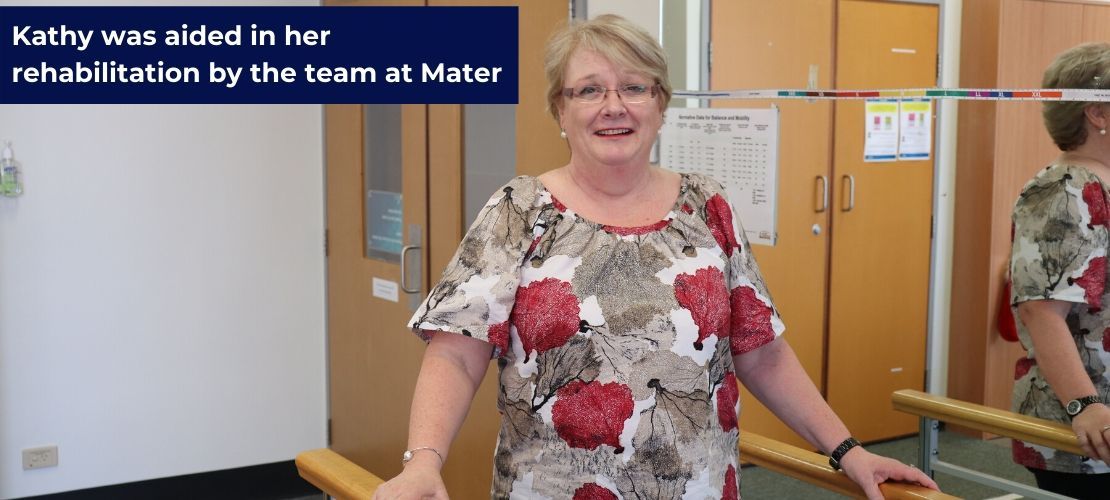Caring Continues for Stroke Patients

A new program created by Mater Neurosciences Centre is designed to help patient’s impacted by debilitating strokes speed up their recovery by keeping them active and engaged in their rehabilitation and tailoring therapy plans to meet individual needs and goals.
The Stroke Care team were looking for strategies to reduce patient’s sedentary time and have developed a program called the Acute Stroke Enrichment Program using therapy plans which are mentally stimulating, promote physical activity and engage family members in their recovery.
Stroke Care Coordinator Marie McCaig says the team has seen continuous improvements in patients using the program.
“It is our goal to improve social, cognitive and physical outcomes for our patients which we are achieving by incorporating more therapy and activity into our care planning. They are tailored to a patient’s personal goals, physical strength, perception, function and balance,” Marie said.
“The program requires us to work collaboratively with our team of physiotherapists, speech pathologists, occupational therapists, nursing and clinical staff as well as engaging with family members to create tailored therapy plans for individual patients.
“We found family members wanted to be involved in the rehabilitation of their loved ones and through this program we have been able to equip them with the tools and knowledge to do this.”
Patients are given planners mapping out their therapy plan with activities they can do on their own or with family members; this includes interactive games using iPads which improves hand-eye coordination and cognitive abilities.
During the active hours of the day the Stroke Care team have set up their rehabilitation gym with additional resources to resemble a normal home complete with a stocked kitchen, functioning laundry and everyday household items.
Occupational Therapist Aleysha Martin explains they encourage patients to practice day-to-day activities they do at home.
“We do this to prepare our patients for their return to home, assess their progress and establish whether they will be able to function at home safely or if we need to arrange at home support,” Aleysha said.
“They practice doing a load of washing, hanging out clothing, folding laundry, opening bottles, preparing food, putting groceries away and other daily activities they would normally do at home.”
Activities for stroke patients may seem simple and commonplace however are very necessary as patients aren’t healing the injured part of the brain but instead teaching the brain to control these functions from a different place.
Marie said her team face many challenges which can include when a patient has limited social connections and little to no visitors.
“While we are trying to incorporate families into a patient’s therapy plan we understand that is not always feasible. Some patients do experience real loneliness and social isolation while in hospital,” she said.
“To combat this the team have introduced a weekly lunch club where patients can gather and share a meal together.
“Not only is this important to combat social isolation but for building a patient’s confidence as they need to learn how to eat independently again. Here they are in a supportive environment where they don’t need to feel self-conscious.”
Looking to the future Marie has many more plans for the Acute Stroke Enrichment Program which includes a raised garden bed for patients to use, incorporation of alternative therapies and expanding the lunch club to a daily event.
“We are currently needing more resources for these activities to take off however we are hopeful more funding will mean we can offer our patients a wider selection of activities,” she said.

We would love to hear from you
We would love to know what you think about Mater Lotteries!
1800 067 066
All times displayed in your local timezone unless stated otherwise. Mater Foundation Ltd as trustee for Mater Foundation is registered as a charity with the Australian Charities and Not-for-profits Commission. ABN 96723184640. All prices are displayed in AUD.



